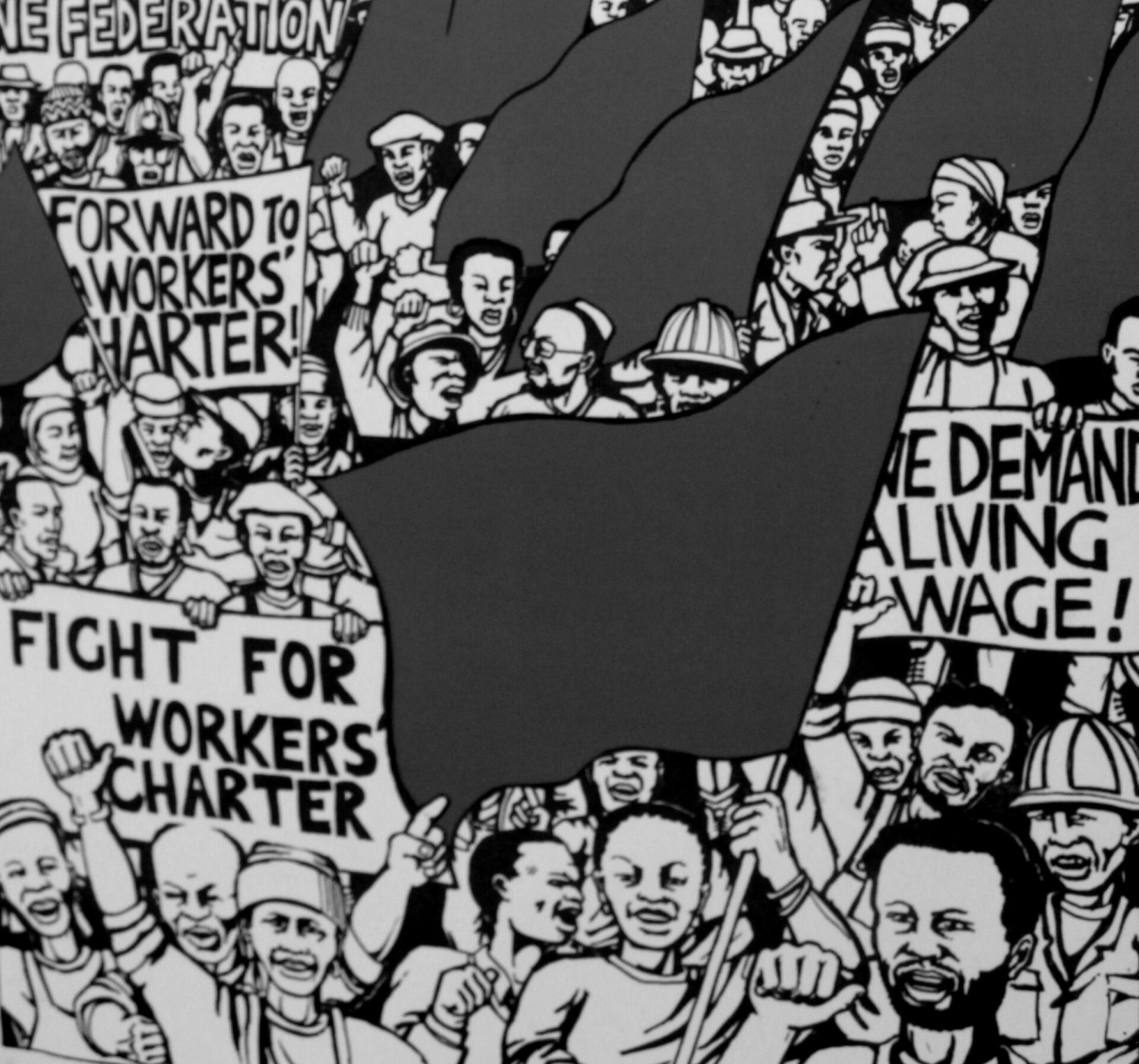During the last two decades a lot has changed in many aspects of our lives. One of the biggest influences on these changes has been the rise of globalisation which emerged as a different way of doing business. These changes impacted on many things in the spheres of economic, politics, culture, our daily lives and our workplaces. These changes has also impacted on the organisations that we belong to, including our trade unions.
Trade unions are constantly having to grapple with new ways of organising, new ways of struggles and new ways of doing education. Sometimes trade unions find themselves bogged down in endless committees, sub-committees and have to attend meeting after meeting trying to find solutions to problems in a company, a sector or even an industry. Previously this was not the domain of trade unions. It was never seen as the work of trade unions to try to find ways to save a dying Manufacturing sector. Similarly it was not seen as the role of trade unions to provide skills training for workers. Now however, trade unions are seeking accredited training for its members and staff. Training on how to be an effective union organiser is fast becoming a marketable skill, rather than a passion for which a person feels strongly for. However, globalisation has seemingly found a way of making the interests of capital seem the same as that of labour.
These changes pose many challenges for trade unions and included in these challenges is trade unions education. During the 1970s and 1980s, trade union education was seen as activities that would strengthen organisation, empower worker leaders and provide political understanding of struggles. These activities included training on how to manage a strike, or how to mobilise communities to support workers struggles. Some of this education was to understand alternative economic systems like socialism and how to organise society differently and more equitably. While formal educational activities were used, many of these activities were informal and took place in other constitutional and non-constitutional structures of the unions.
Today, the emphasis seems to be on formal education activities and more and more, union leadership wants to have training at a tertiary institution with and accredited certificate or diploma. Even at the level of more formal trade union education activities, there have been discussion and views on what are the best methods of trade union education. There are some who favour “old style” methods of presentations, group work and report backs. There are those who favour new forms of education where no presentations are made, where no group reading takes place, where very little structured activities are prepared for. This view prefers that education must be all fun and no hard work. Still, there are those who see value in both these forms of educational activities and argue for a more integrated approach where both methods are used depending on what is to be learnt. These are some of the issues which face trade unionists who are faced with providing trade union education.
This worker education booklet is an attempt to raise some of the issues, and address some of the views held by educators.
Worker Education: A guide for trade unions
